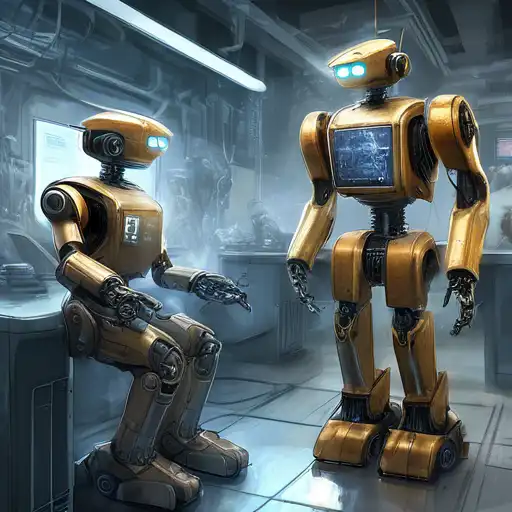The Moral Dilemmas of Autonomous Robots
In the rapidly evolving world of technology, autonomous robots represent a pinnacle of human achievement. These self-operating machines, capable of performing tasks without human intervention, are increasingly becoming a part of our daily lives. From self-driving cars to robotic assistants, the integration of autonomous robots into society raises significant ethical questions that demand our attention.
Understanding Autonomous Robots
Autonomous robots are designed to operate independently, making decisions based on pre-programmed algorithms and real-time data. Unlike traditional robots, which require explicit instructions for every action, autonomous robots can adapt to their environment and make decisions on their own. This level of independence introduces complex ethical considerations, particularly in scenarios where robots must make moral judgments.
The Ethical Framework
Developing an ethical framework for autonomous robots involves addressing several key issues. These include the delegation of moral decision-making to machines, the potential for bias in algorithms, and the accountability for actions taken by robots. As we entrust more responsibilities to these machines, establishing a clear ethical guideline becomes imperative to ensure their actions align with human values.
Challenges and Considerations
One of the primary challenges in the ethics of autonomous robots is the programming of moral decisions. How should a self-driving car prioritize lives in an unavoidable accident? Can a robot truly understand the nuances of human ethics? These questions highlight the need for interdisciplinary collaboration between technologists, ethicists, and policymakers to navigate the moral landscape of autonomous technology.
The Future of Autonomous Ethics
As autonomous robots become more advanced, the ethical considerations will only grow more complex. The development of international standards and regulations will be crucial in guiding the ethical deployment of these technologies. By fostering open dialogue and research, we can ensure that autonomous robots serve humanity's best interests while respecting our moral and ethical standards.
In conclusion, the ethics of autonomous robots is a multifaceted issue that requires careful consideration and collaboration. As we stand on the brink of a new era in technology, it is our responsibility to guide the development of autonomous robots in a direction that benefits all of society. For more insights into the future of technology, explore our future technology section.
